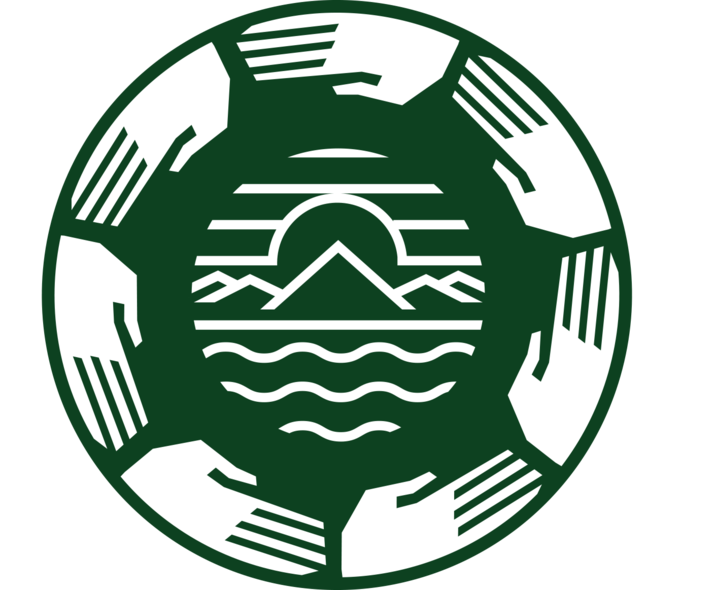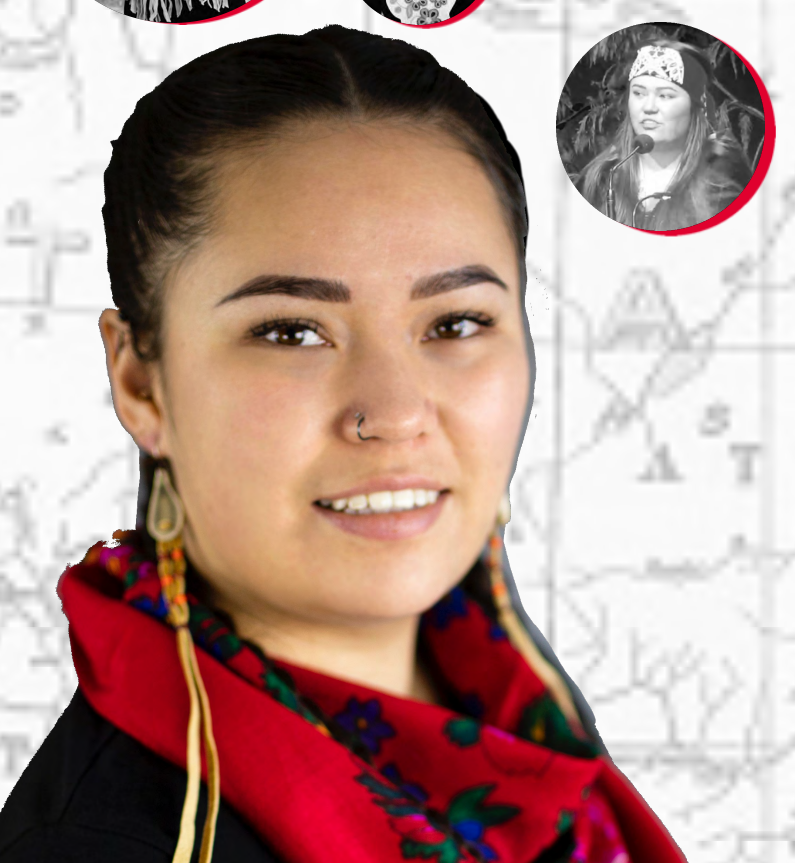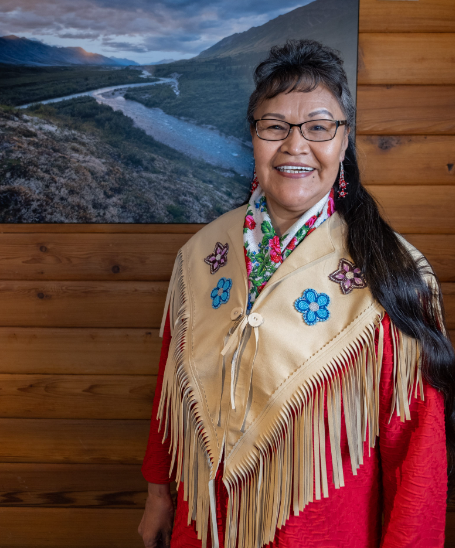-
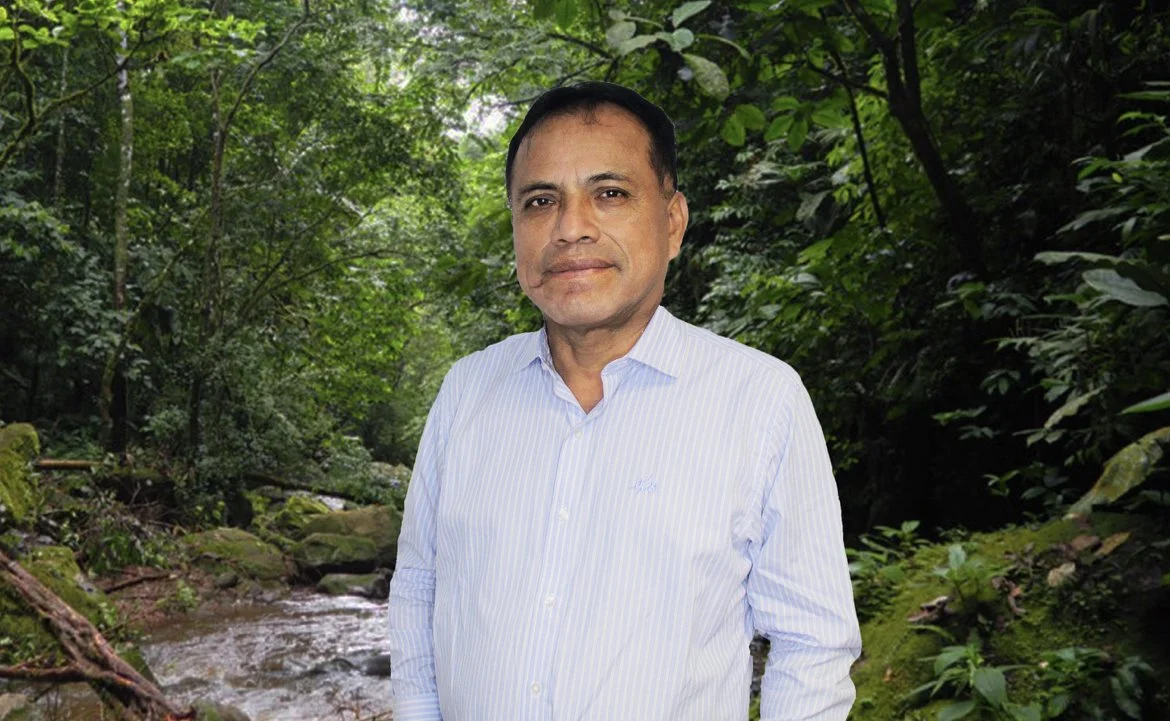
Oseas Barbarán Sanchez (he/him)
Tribal affiliation/ global region: Shipibo; Latin America
Language(s): Español
Oseas Barbarán Sánchez, es actualmente presidente de la Confederación de Nacionalidades Amazónicas del Perú-CONAP, del pueblo shipibo, ucayalino, administrador de empresas de formación, que le ha permitido una gestión técnica y financiera de la organización y trabajado por la defensa de los PPII y en el desarrollo de políticas inclusivas respecto de los derechos humanos, el cambio climático, el manejo forestal, Género, entre otros. Ha participado en muchos eventos nacionales e internacionales exponiendo diversos temas desde un enfoque y cosmovisión indígena.
Topics of expertise: Fondos climáticos, adaptación
-
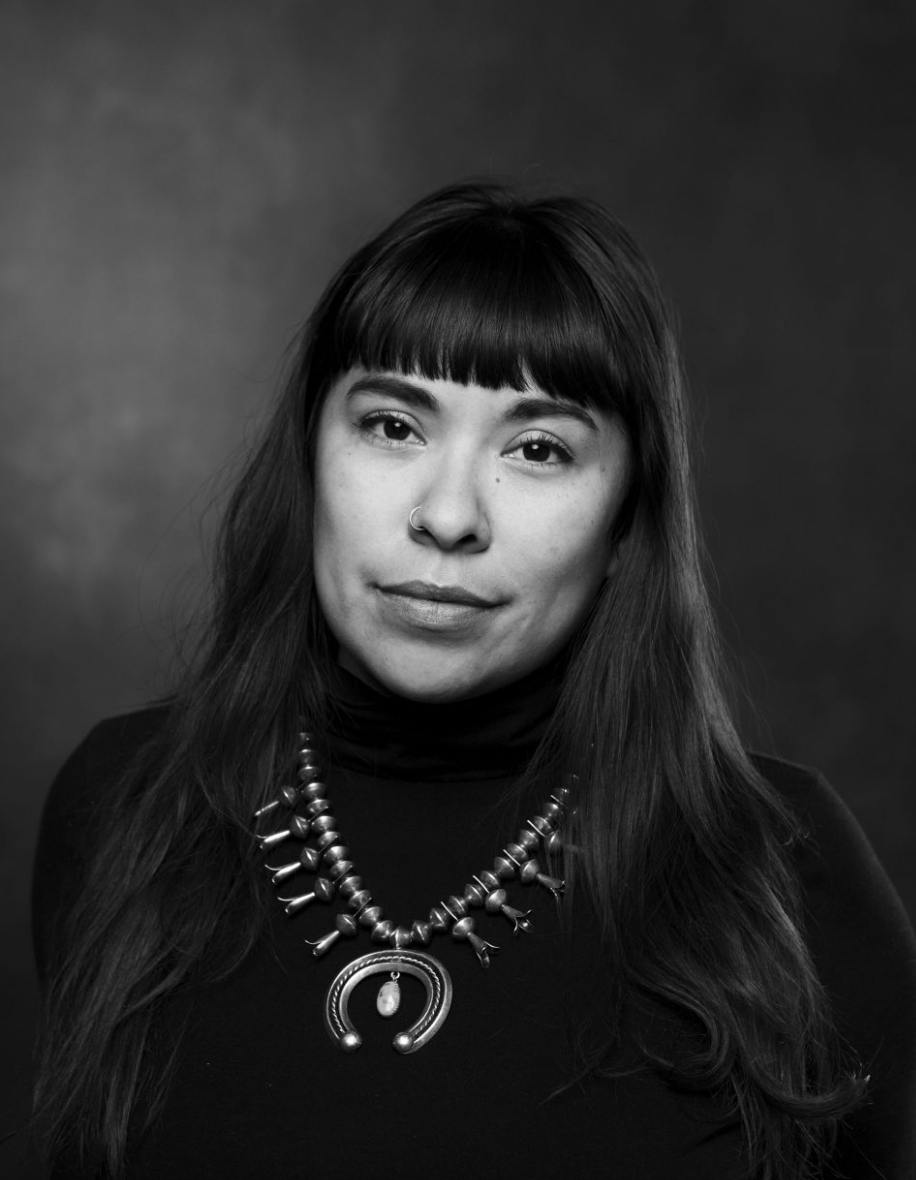
Jade Begay (she/her)
Tribal affiliation/ global region: Tesuque Pueblo & Dine; North America
Language(s): English
Jade Begay leads NDN Collective’s climate justice campaign work and serves as a member of White House Environmental Justice Advisory Council. She brings extensive experience working in climate justice movement spaces throughout Turtle Island and within Indigenous communities across the globe. She has also worked as a multimedia producer, filmmaker and communications professional working in non-profit and Indigenous organizations.
Topics of expertise: Climate finance, adaptation, water, gender & climate justice, false solutions, loss & damage, decarbonization
-
Kailea Frederick (she/her)
Tribal affiliation/ global region: Tahltan and Kaska First Nations, Black American; North America
Language(s): English
Kailea, Climate Justice Organizer at NDN Collective, is a mother, graduate of the International Youth Initiative Program and a Spiritual Ecology and Boards & Commissions Leadership Fellow. Kailea is a returning delegate to the United Nations Climate Change conferences, serves as the Editor for Loam, and guided climate policy for the city of Petaluma from 2019 through 2022.
Topics of expertise: Climate finance, youth/future generations, adaptation, water, gender & climate justice, loss & damages, false solutions
-
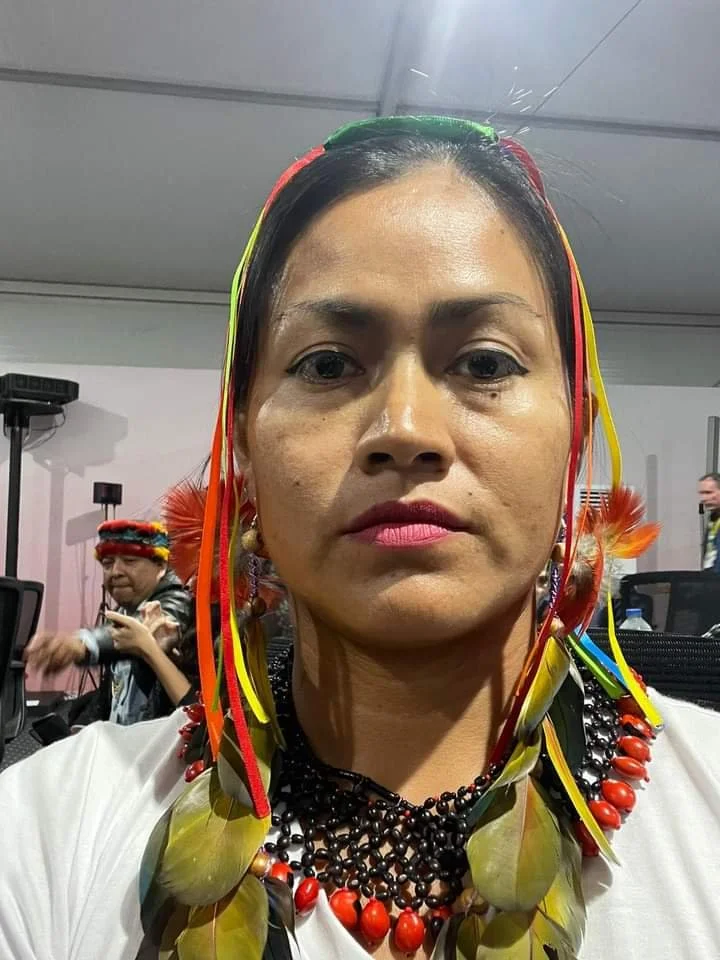
Marisol García Apagüeño
Tribal affiliation/ global region: FEPIKECHA, Latin America
Language(s): Español
Lideresa y defensora Indígena del pueblo Kichwa, promuevo la resistwncia del corazon verde en defensa de la amazonía y la conciencia ambiental, estoy en ontra de las falsas soluciones climáticas.Topics of expertise: Fondos climáticos, juventud/futuras generaciones, género y justicia climática, falsas soluciones
-

Freddy Sebastian MEDINA (he/him)
Tribal affiliation/ global region: Aymara; Latin America
Language(s): Spanish, English, French, Aymara
Environmental science teacher belonging to the Aymara people community of Putre, dedicated to climate change education for capacity building inside Aymara peoples. Co-founder of the Chilean Indigenous Forum on Climate Change.Topics of expertise: Science, youth/future generations, adaptation, mining
-
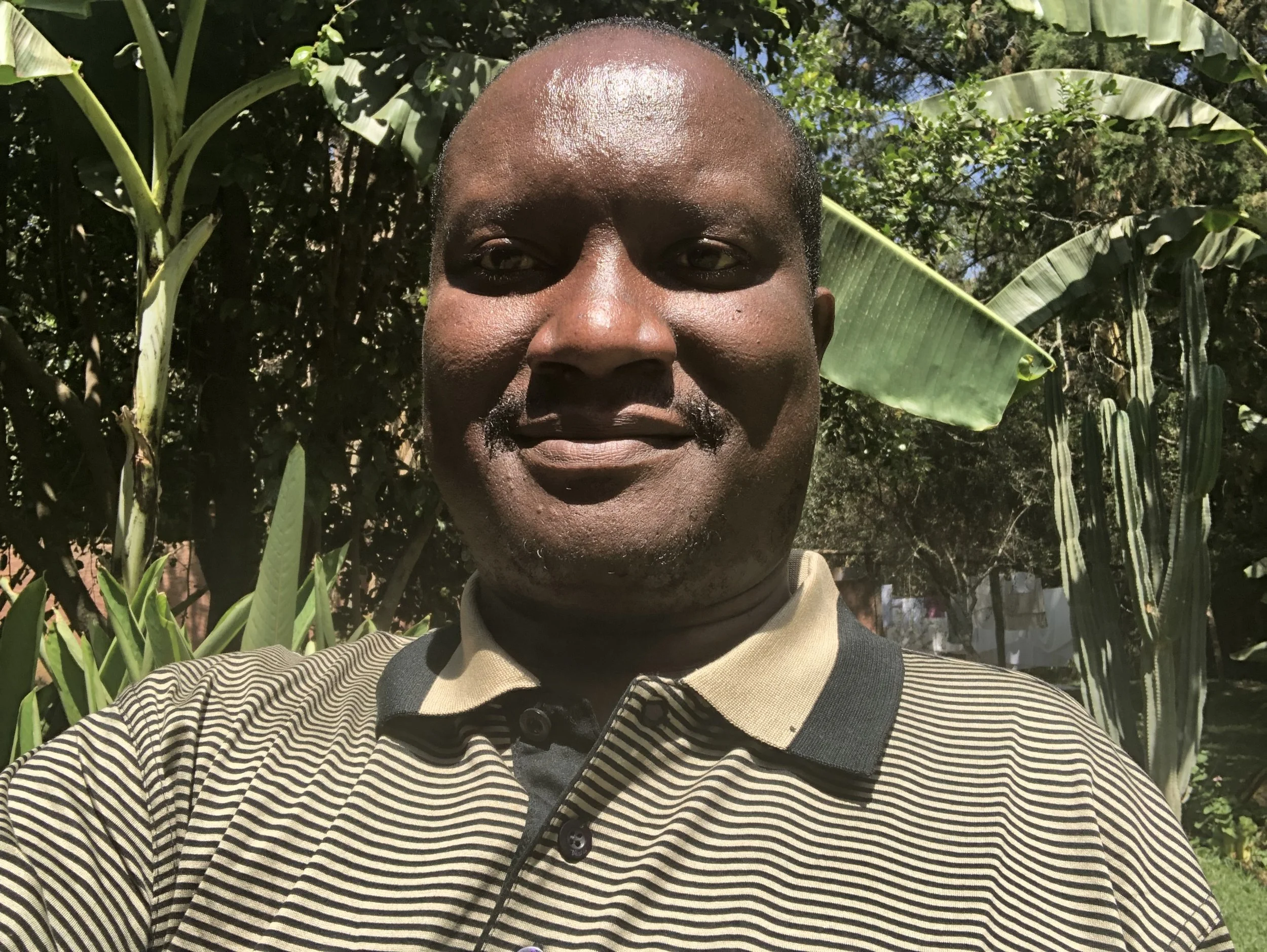
Kanyinke Sena (he/him)
Tribal affiliation/ global region: Maasai; Africa
Language(s): English
Dr. Sena, director of The Indigenous Peoples of Africa Co-ordinating Committee (IPACC) is an Indigenous person from Kenya with a Doctorate in Indigenous Peoples Law and Policy from the University of Arizona, USA. After completing his doctorate, Kanyinke returned to Kenya and is currently a lecturer in the Faculty of Law at Egerton University, Nairobi.
Between 2006-2010, Dr. Sena acted as IPACC’s regional representative of East Africa, and in a career built around indigenous peoples and issues, has served as a member and chairperson of the United Nations Permanent Forum on Indigenous Issues, a member of the African Commission Working Group on Indigenous Populations, and a consultant for the World Bank’s Forest Carbon Facility, the UNREDD+ Program, and Conservation International among other international organizations. Dr. Sena is therefore an expert of indigenous peoples issues and laws at the local, national and international levels.
Topics of expertise: Climate finance, water
-
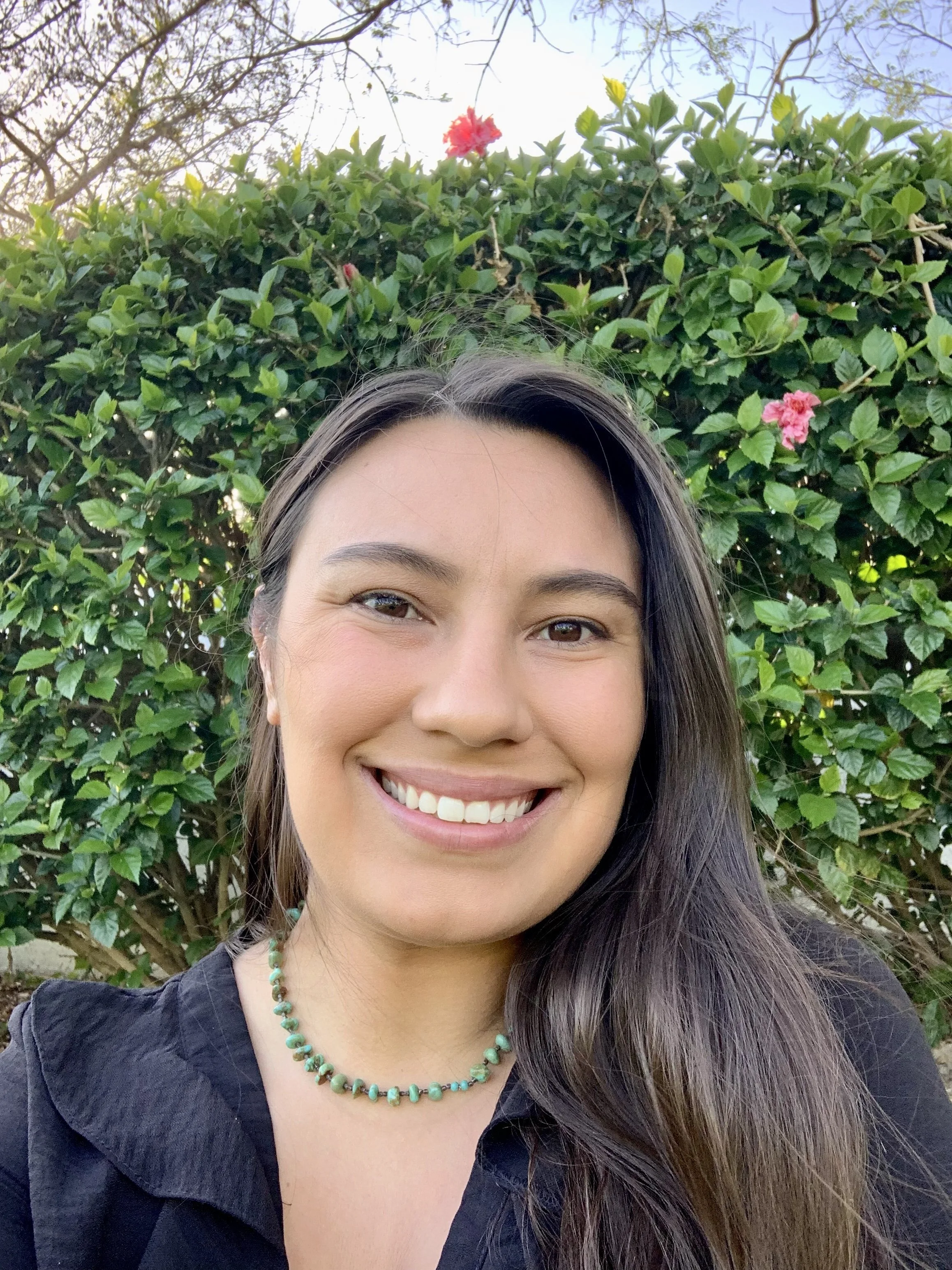
Angelica “Angie” Solloa (she/her)
Tribal affiliation/ global region: Mayan and Hopi; North America
Language(s): English and Spanish
Based in Southern California on Chumash Territory, Angie serves as the Digital Organizer for NDN Collectives’s Actions team. Her priorities include addressing and ending poverty and homelessness, particularly in BIPOC communities.
Topics of expertise: Youth/ future generations, water, mining
-

Cecilio Solís Librado
Tribal affiliation/ global region: Nahua; Latin America
Language(s): Español
Indígena Nahua de la sierra norte de puebla, especialista en desarrollo y derechos indígenas, geógrafo.
Topics of expertise: Fondos climáticos, juventud/futuras generaciones, descarbonización, adaptación, pérdidas y daños, falsas soluciones
-
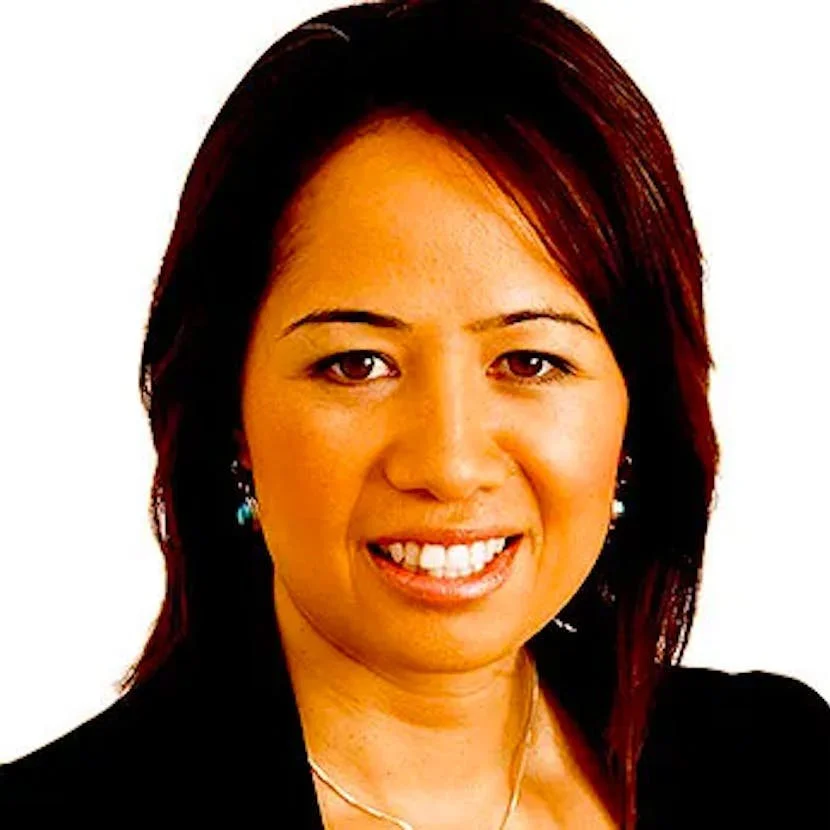
Mere Takoko (she/her)
Tribal affiliation/ global region: Ngati Porou, Māori, Aotearoa; The Pacific
Language(s): Te reo Māori, English
Mere is Vice President of Conservation International Aotearoa and specialises in climate change, Māori development, and policy and legislation across multiple sectors. Mere leads Conservation International Aotearoa’s is as focused on delivering transformative, Iwi/Māori-led, ocean solutions through partnerships to create impactful actions for people and nature of Aotearoa. She is undertaking PhD research on establishing a blue carbon plan to promote climate resilience and sustainable economic development for the Ngā Hapū o Ngāti Porou Exclusive Economic Zone.
Mere is working with various traditional Indigenous ocean knowledge systems, from Iwi/Māori to thie Pacific Islands, to direct the development of the Hinemoana Halo Ocean Initiative for Ngā Hapū o Ngāti Porou and an ocean governance legislative framework.
Mere is Indigenous Māori and of Ngāti Porou and Rongowhakaata descent. She currently lives in Tūranga-nui-a-Kiwa (Gisborne, New Zealand) and is from the small coastal settlement of Rangitukia.
Topics of expertise: Climate finance, science, adaptation, gender & climate justice
-
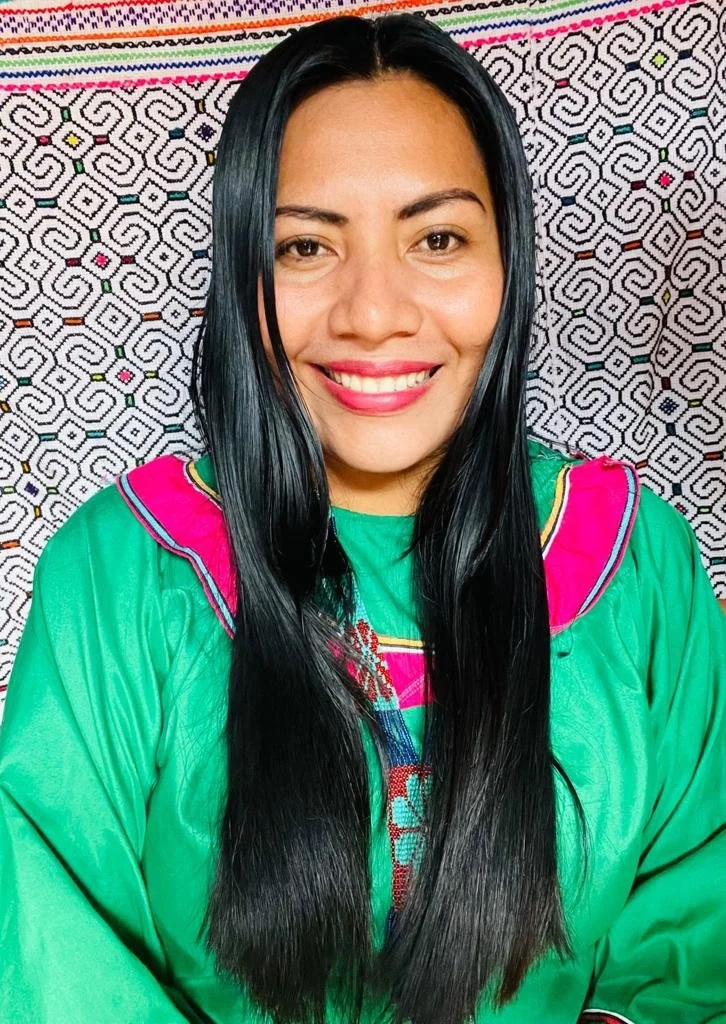
Virginia Ulrika Cauper Lomas
Tribal affiliation/ global region: Pueblo Shipibo Konibo; Latin America
Language(s): Español y lengua nativo Shipibo
Respresento al programa mujer indígena de ORAU y a la red de jóvenes líderes amazónicos
Topics of expertise: Juventud/futuras generaciones, adaptación
-

Sydney Vandale (she/her)
Tribal affiliation/ global region: First Nation, Métis and Inuit; North America
Language(s): English
Sydney is the Communications Manager at Indigenous Clean Energy (ICE) is non-profit, community-driven enterprise working collaboratively to advance Indigenous inclusion in Canada’s clean energy future.
Topics of expertise: Climate finance, youth & future generations, decarbonization, adaptation, gender & climate justice, loss & damage
-
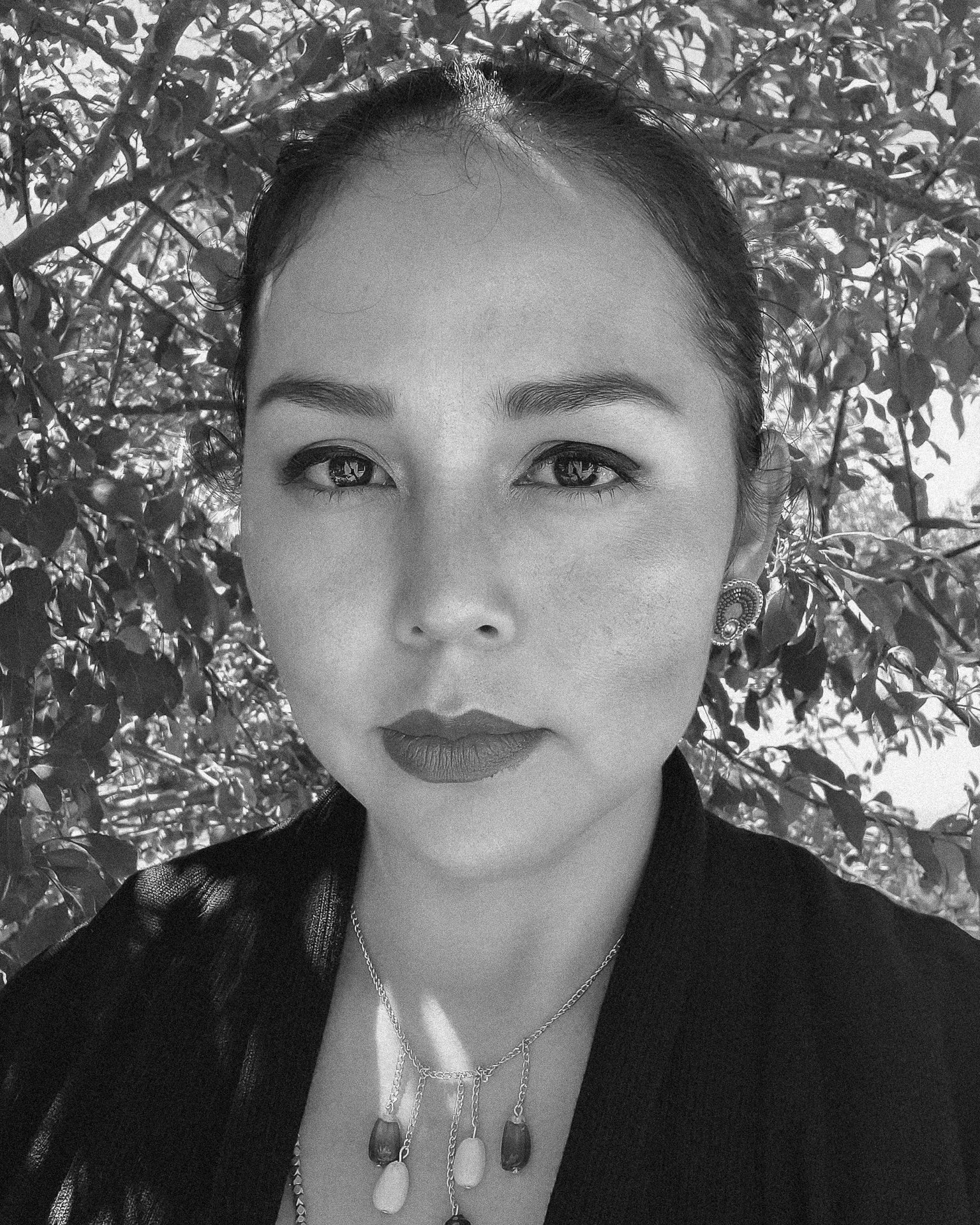
Janene Yazzie (she/her)
Tribal affiliation/ global region: Diné; North America
Language(s): English
Janene Yazzie serves as the Southwest Regional Director for NDN Collective. She has over 12 years of experience as a community organizer and human rights advocate deeply rooted in local community issues. Beginning from her community Tsé si’ áni, in Diné Bikéyah, she has worked on the intersections of climate change, water security, food security, energy development, and nation building with indigenous communities and indigenous-led organizations in the US, Canada, and Latin America.
Topics of expertise: Climate finance, science, youth/future generations, adaptation, water, gender & climate justice, false solutions
-

Krishna Gahatraj (he/him)
Affiliation: Dalit; Asia
Language(s): English
Krishna Gahatraj is a young disability rights activist from Nepal. He is a person with lived experience of disability and belongs to the Dalit community. Krishna has expertise in human rights, disability-inclusive development, and humanitarian action. He is currently working at Disability Rights Fund/Disability Rights Advocacy Fund as a Program Officer for Nepal. Krishna has been engaging since over a decade to amplify the voices of those most marginalized and underrepresented groups, particularly of those persons with disabilities, to protect and promote their rights on an equal basis with others.
-

Pratima Gurung (she/her)
Affiliation: Gurung; Asia
Language(s): English
Pratima Gurung is an academic activist and an indigenous woman with a disability from Nepal. She is a champion of intersectionality in the disability rights movement, including women's, indigenous, and minority rights perspectives in her disability and development work. Pratima’s work has been instrumental in bridging multiple marginalized identities and initiating cross-movement collaboration in raising the voiceless voices of young indigenous peoples/women with disabilities from Nepal, Asia, and globally since 2011. She is also a faculty member at Padmakanya College, one of the only women’s colleges in Nepal. She is engaged in research and links her academic research to advocacy, including on the impact of climate change on indigenous peoples with disabilities. She also contributes as an expert on the Disability National Direction Committee under the Ministry of Women, Children, and Senior Citizens of the Government of Nepal. Ms. Gurung is a founding member and currently General Secretary of Indigenous Person with Disabilities Global Network (IPWDGN) and National Indigenous Disabled Women Association Nepal (NIDWAN).
-

Kera O'Regan (she/her)
Affiliation: Kāi Tahu, Pacific
Languages: English, French
Kera Sherwood-O’Regan (Kāi Tahu) is an Indigenous and disabled climate justice expert and community advocate from Te Waipounamu, the South Island of New Zealand. She is the Co-founder of Activate, an Indigenous and disabled-led social impact agency specialising in ethical campaigning and narratives for climate justice and social change. Working in partnership with NGOs; governments and their agencies; and affected communities, O’Regan’s work centres structurally oppressed communities in social change movements to drive campaigns that are powerful, effective, and equitable.
Her creative practice explores themes of story sovereignty; right relationship; and collective consent in community storytelling, and seeks to raise the bar for free, prior, and informed consent in media and campaigning. She has participated annually, since COP23, in the International Indigenous Peoples’ Forum on Climate Change caucus; and is a founding member of the SustainedAbility Disability and Climate Network.
In her free time, O’Regan is a member of the National Executive Committee for the Disabled Persons Assembly, New Zealand’s only pan-impairment DPO; and the founder of Fibromyalgia Aotearoa NZ, bringing visibility and support to people living with chronic illness. She is a Climate Reality Leader and a regular public speaker, writer and commentator, bringing an intersectional lens to climate change policy and campaigning. Her most important work, and lifelong journey, is strengthening her connection with her whenua (land); tūpuna (ancestors); reo (language); and whānauka (extended relations) at home in Te Waipounamu.
-
Taylor Behn-Tsakoza (she/her)
Taylor Behn-Tsakoza is the daughter of Sally Behn and Kevin Tsakoza, and the granddaughter of George Behn and the late Mary Behn and Rose Tsakoza. She is Eh Cho Dene and Dunne Zaa, and is a proud member of Fort Nelson First Nation in Northeast BC, Treaty 8 Territory. Having grown up under the guidance of her Mother, Grandparents, and the values of her Nation, Taylor developed a strong passion for her culture, education and sports. Taylor’s knowledge of her people’s way of life has inspired her to use her voice to engage in dialogue across the province and country about contemporary and historical issues on Turtle Island. The vision of having future generations be in a position that allows greater influence and healing for her people has driven Taylor in her actions, thoughts, and words. Engagement at a provincial level started for Taylor when she played for Team BC at the National Aboriginal Hockey Championships. Learning from her teammates about the importance of cross-cultural exchanges, sharing our struggles and successes as young people while doing what we love, playing hockey, put into perspective for Taylor the legitimacy in having representations from all regions when it comes to matters that affect everyone. While pursuing her Health and Physical Education degree in Treaty 7 Territory for the last 5 years, Taylor found her voice and gifts which has led her to speak on provincial and national panels, and she currently sits on the FNHA youth advisory committee and previously was a We Matter Hope Council member. Being a part of the provincial and national discussion around what wellness and life promotion should look like in Indigenous communities has been Taylor’s biggest honour. Being a Dene handgames enthusiast, a beginner beader and dry meat maker as well as the first in her immediate family to obtain a university degree, Taylor advocates for Indigenous people to have access to contemporary and traditional forms of education. Speaking on CANDO’s National Youth Panel and at Gathering Wisdom for a Shared Journey X and XI allowed Taylor to address First Nations leaders on the importance of welcoming back their youth who have left the reserve to pursue education and creating opportunity to guide them in practicing their culture. Most recently, Taylor represented her federal riding of Prince George- Peace River- Northern Rockies at Daughters of the Vote in Ottawa. Sitting in the House of Commons and Senate surrounded by other young women leaders from across the country motivated Taylor to continue her path into politics and social justice. Taylor’s platform stands strong on the principles based on Dene Law which includes giving others an opportunity to be heard, passing on our teachings and engaging with our elders and land in a respectful way. As she pursues a certificate in Land and Community Based Research and a graduate certificate in Indigenous Sport and Recreation Management and continues her work of bringing sexual health and harm reduction workshops to Indigenous youth across BC, Taylor hopes to bring her professional and life experiences and passion for creating a culturally connected future into her role as the Female Youth Representative for BC AFN.
-
Lorraine Netro (she/her)
Since 1999, Lorraine Netro has dedicated herself to protecting the Arctic National Wildlife Refuge. The refuge is home to the calving grounds of the Porcupine caribou herd, which migrates between Canada and Alaska every year and holds great significance to the Gwich’in Nation. As part of this work, Netro has long advocated against oil development within the Arctic Refuge. Netro also served two terms as MLA for the Vuntut Gwich’in, with shadow cabinet roles for the environment, women and justice. She is a board member for both the Gwich’in Steering Committee and Alaska Wilderness League and sits on the Advisory Committee on Climate Action and the Environment for the Assembly of First Nations. Netro has been instrumental in guiding and mentoring the new generation of Gwitchin leaders, through her selfless advocacy and dedication to the Porcupine caribou.
-
Kennedy Tuccaro (she/her)
Kennedy Tuccaro is a member of the Mikisew Cree First Nation and an environmentalist activist. She is currently completing an accelerated Masters program in Geomatics for Environmental Management where she is undertaking a capstone research project using Indigenous knowledge to aid in understanding the environmental factors contributing to the limited eastern movement of the Ronald Lake Bison Herd in northeastern Alberta in collaboration with her First Nation. She holds a B.A. of Geography (‘22) in Environment and Sustainability, while also specializing in First Nations & Indigenous Studies. Professionally, she works as a junior researcher at an Indigenous-owned environmental consulting firm, where she has been able to grow her knowledge through working for Indigenous Nations on various environmental projects.
